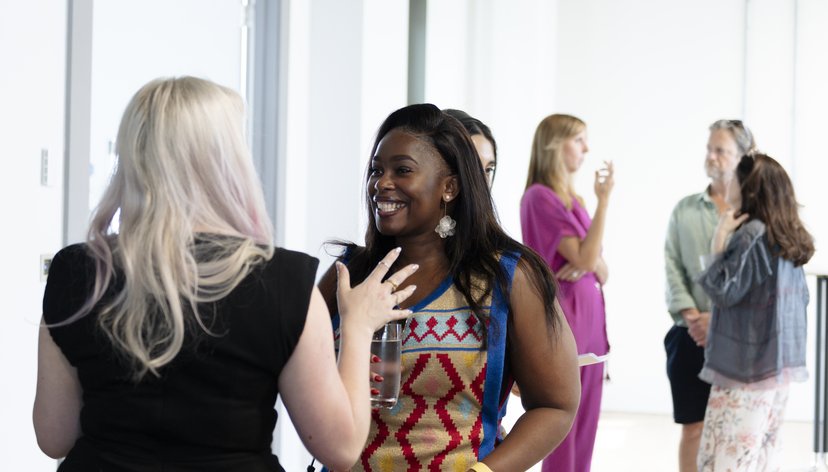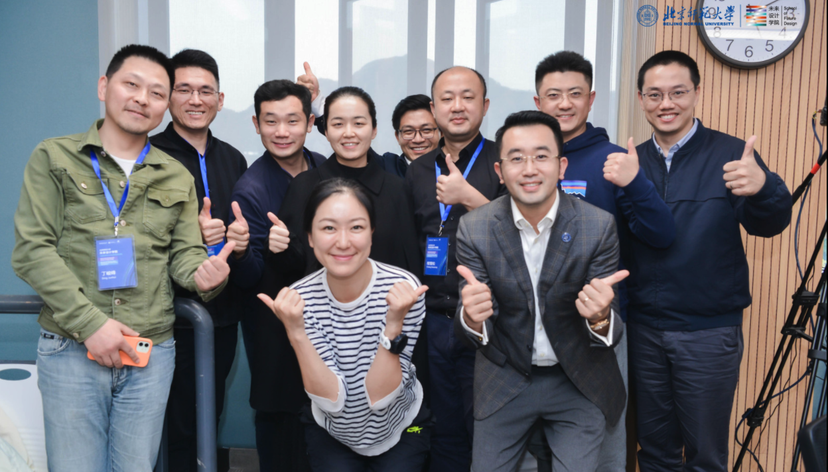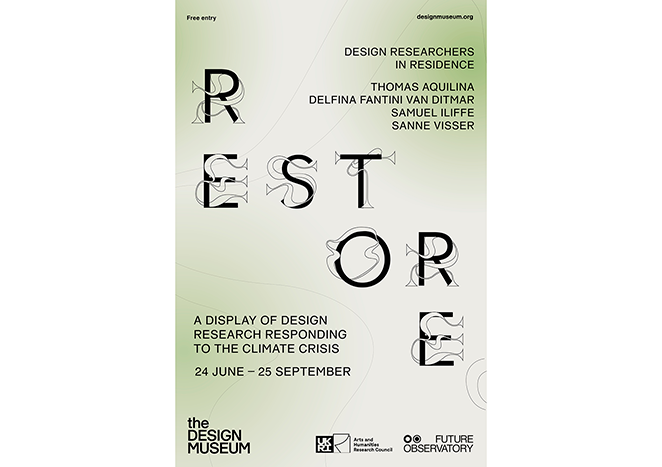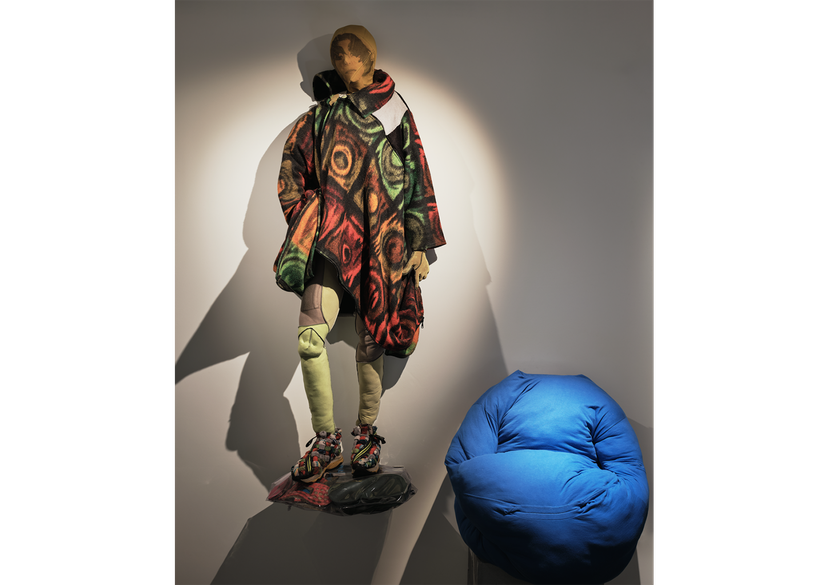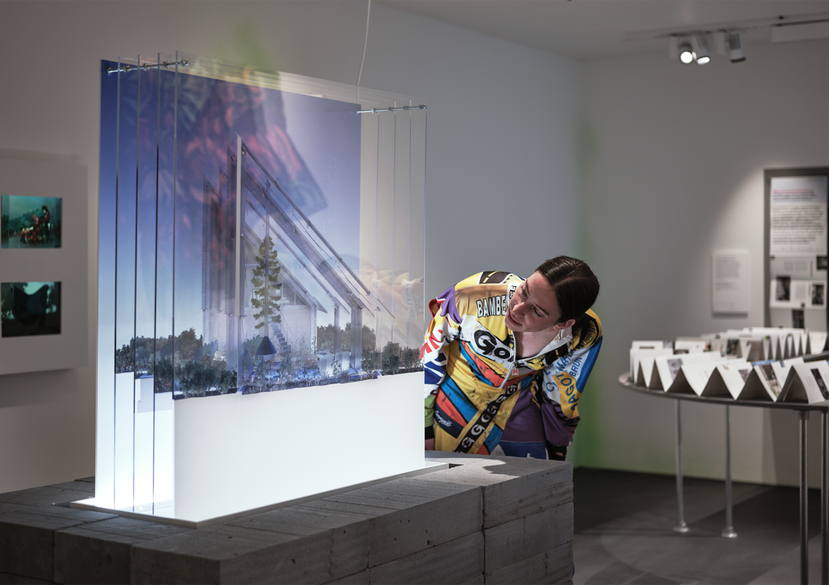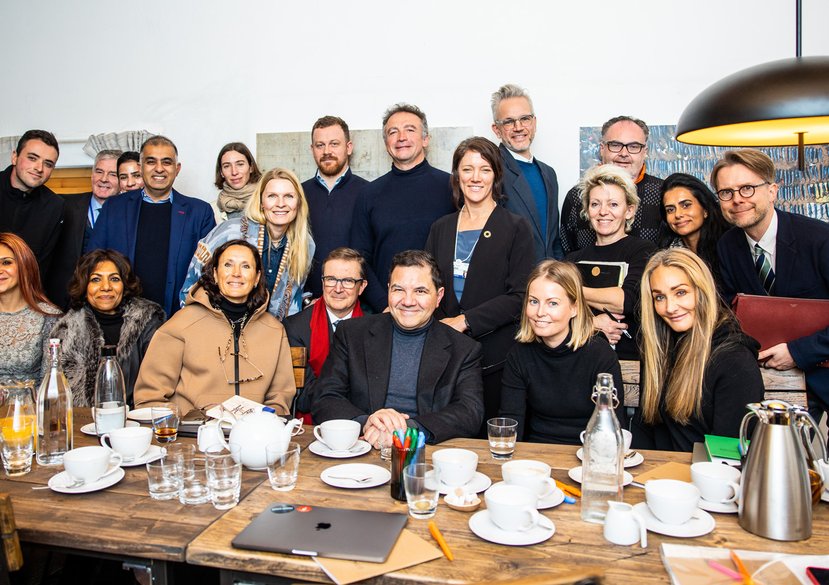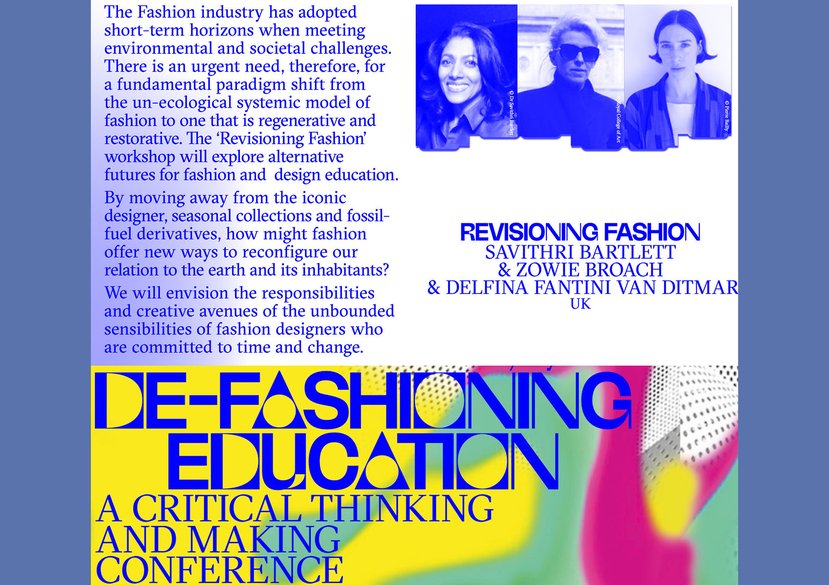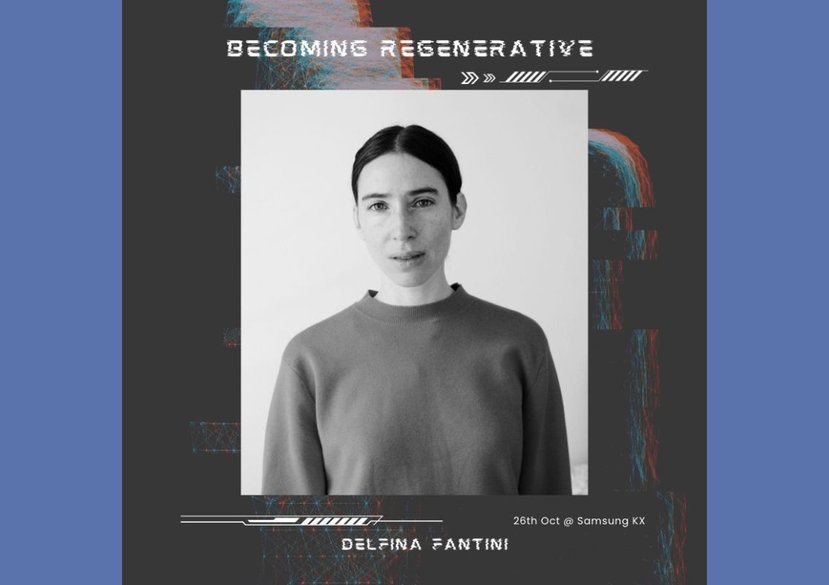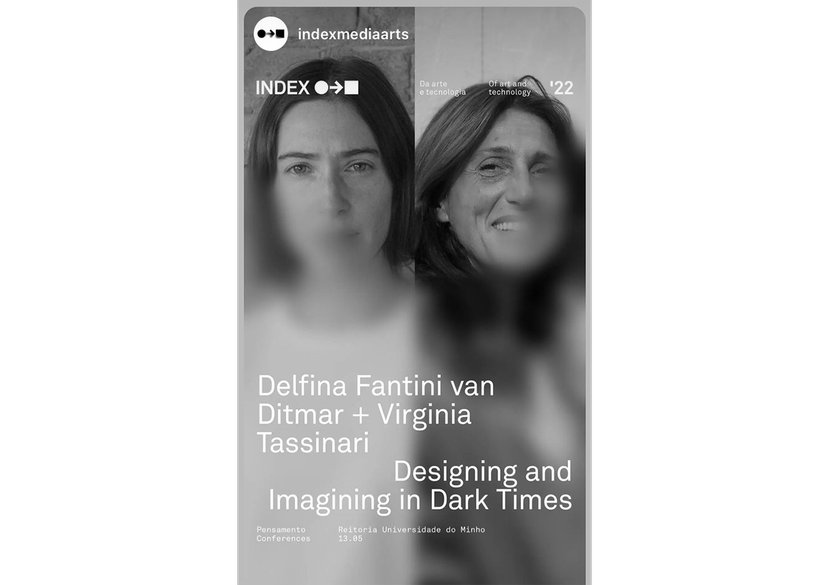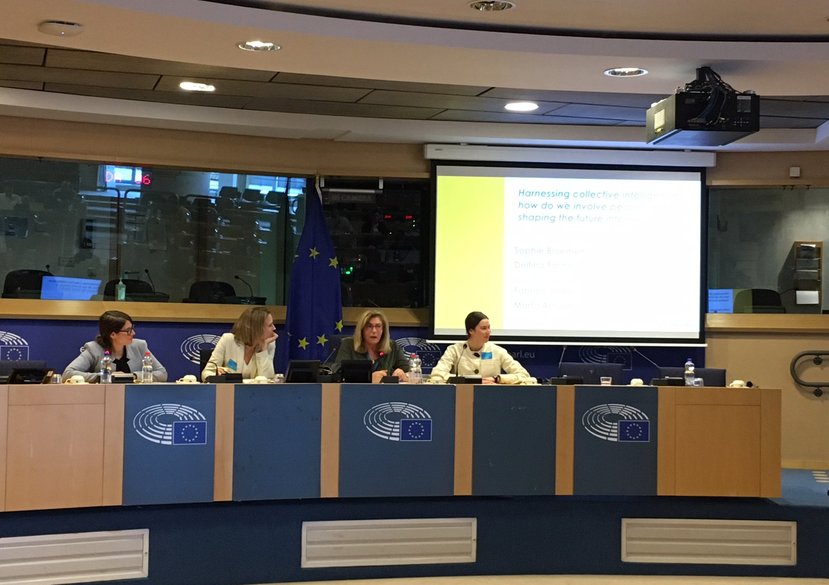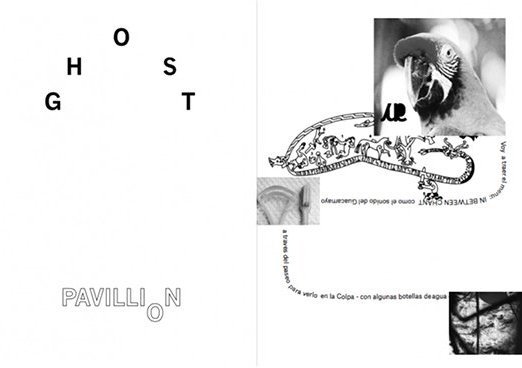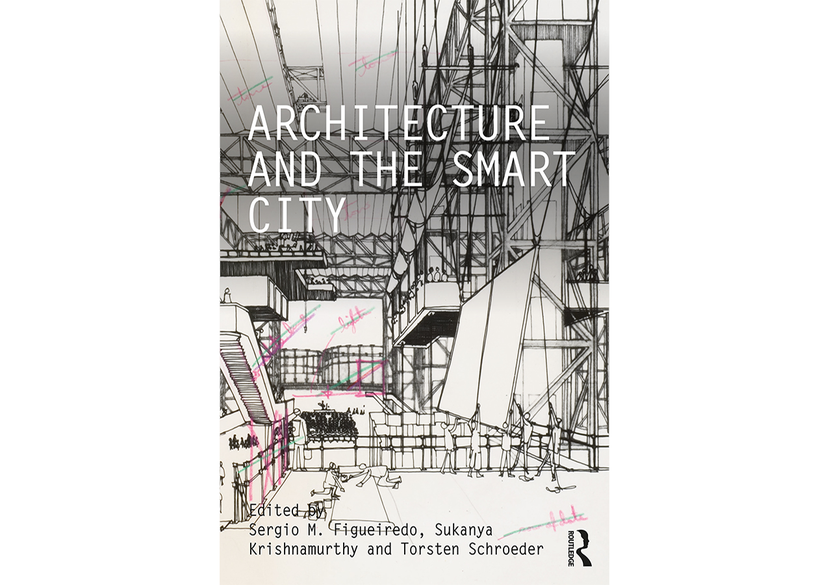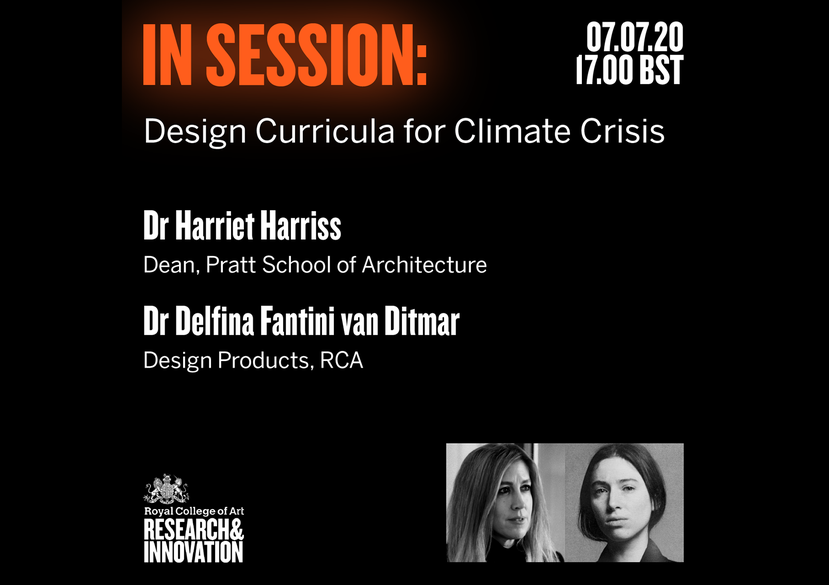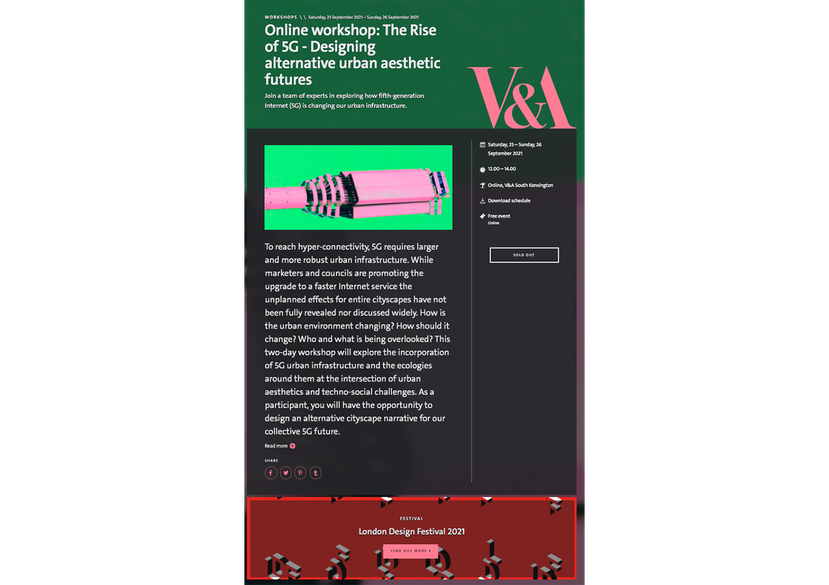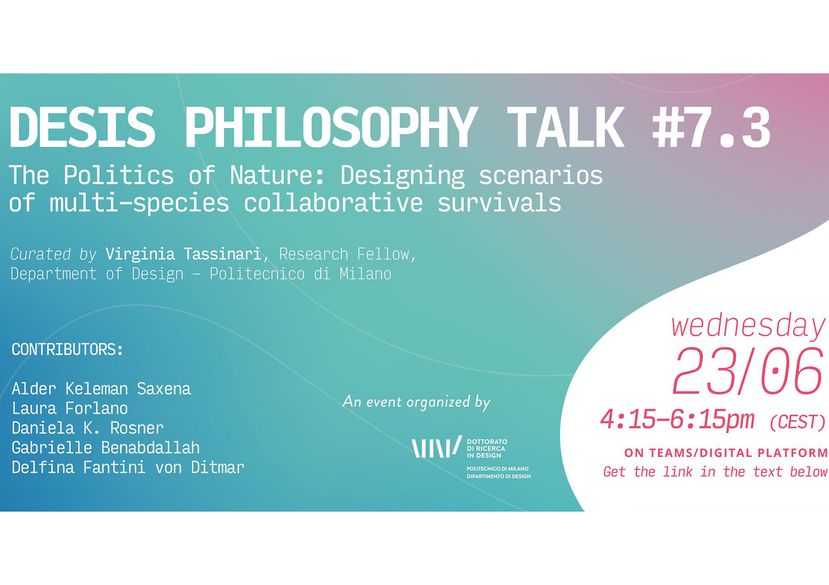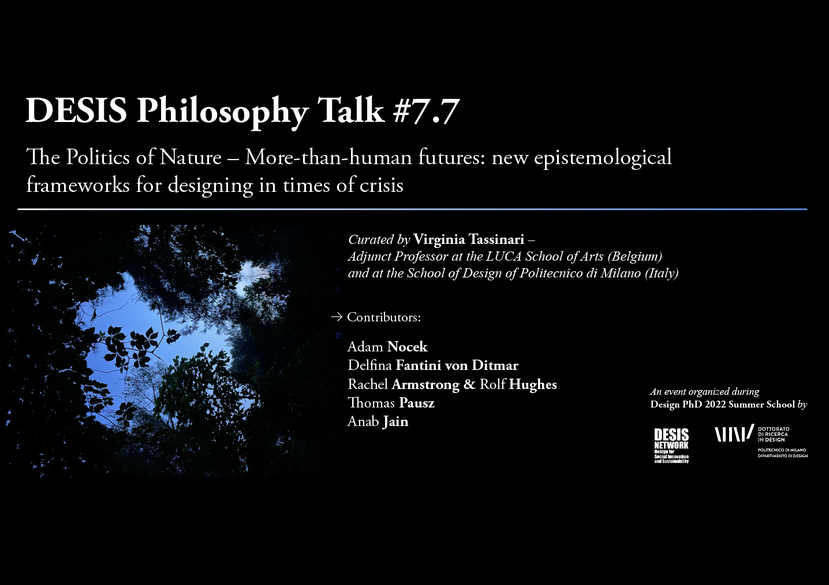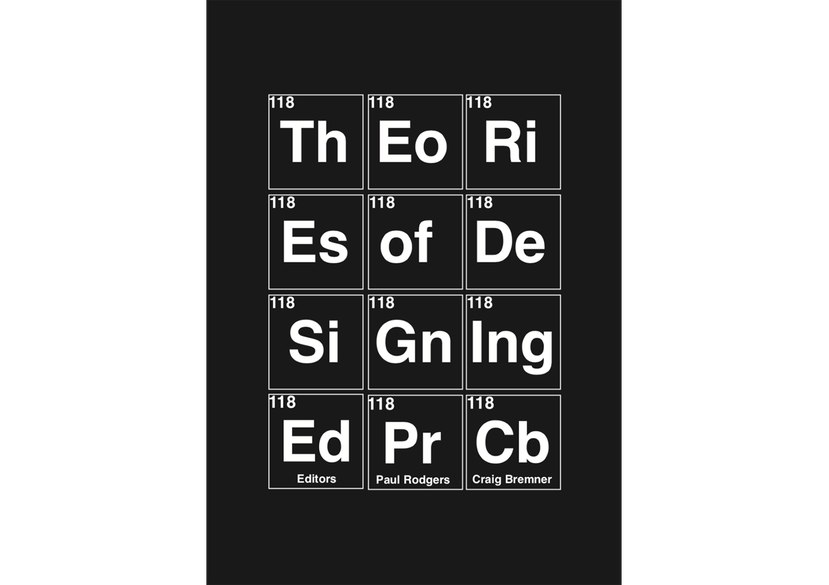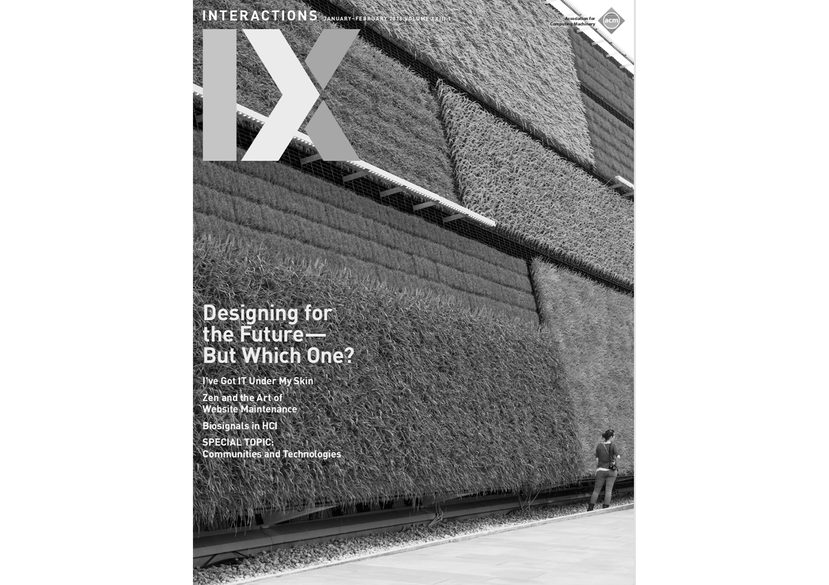
Dr Delfina Fantini van Ditmar is a biologist and design researcher. Her practice is concerned with ecological thinking, reflective systemic practices, regeneration, more than human approaches and alternative futures. Delfina worked previously as a Senior Tutor (Research) at the MA/MSc Innovation Design Engineering and as a Tutor (Research) at the Design Products Programme.
Delfina has a BA in Biology and completed a year of an MFA at Konstfack University in Stockholm. She holds a PhD from the RCA with a thesis entitled 'The IdIoT'.
Delfina is a co-Founder of the Design Research Society (DRS) ‘Design and Ethics’
In 2021 she was selected as one of the Future Observatory Design Researcher in Residency (DriR) at the Design Museum in partnership with the Arts and Humanities Research Council (AHRC).
Driven by her interest in ecological thinking, reflective practices and inter-relations as a systemic response to the environmental collapse, Delfina's critical practice examines material ethics of care and the necessary paradigm shift in design.
In her teaching practice, Delfina encourages students to reflect on epistemological paradigms, envision alternative futures, think systemically and critically analyse the broader implications of their decisions.
Delfina participates in the School of Design transdisciplinary module The Grand Challenge, Across RCA and the elective ‘Design Futures’. Previously Delfina worked as a tutor at Innovation Design Engineering (IDE), Design Products + Futures programme and has been a Visiting Lecturer on the Information Experience Design (IED) programme, MRes RCA Communication Design, MRes RCA Healthcare Design, and the MRes RCA Design pathway.
Delfina has been a crit and Visiting Lecturer in several institutions, including, Politecnico di Milano, TU Berlin, Critical Media Lab Basel, Zurich University of the Arts (ZHdK), Hochschule Luzern (HSLU), École Nationale Supérieure des Arts Décoratifs (ENSAD), The Bartlett, Architectural Association, University of the Arts, Goldsmiths University, Imperial College London, University of Brighton, University of Leeds, Loughborough University, University for the Creative Arts, Manchester School of Art, Liverpool University, Indian Institute of Technology Delhi (IIT Delhi), Syracuse University and Rice University among others.
Key details
School, Centre or Area
Gallery
More information
Research interests
Delfina has a transdisciplinary background linking design research, ecological thinking, and critical algorithmic studies. By problematising the simplification of prevalent ecological problem-framing, acknowledging inter-relationships and reconsidering epistemological frameworks, Delfina's research looks at material ethics of care and regenerative practices.
Practice
Delfina’s practice encourages a critical and reflective approach toward ecological futures. During her career, Delfina has participated in a series of international conferences and events.
In the dispiriting context of the current energy crisis, ongoing war, increasing pollution and environmental damage, Delfina Fantini van Ditmar’s recent exhibition at the Design Museum 'A NOT TOO COMFORTABLE FUTURE' considers what we might need to design – and how we might need to change – to restore our everyday lives.
Research funding
Design Researcher in Residency (DRiR). Design Museum in partnership with the Arts and Humanities Research Council (AHRC).
Awards
Heinz von Foerster Award (2011)
Current and recent research projects
Design Researcher in Residency: RESTORE.
2021-2022
The Design Museum in partnership with the Arts and Humanities Research Council (AHRC). Through Design Research in the context of the climate crisis, the Future Observatory Design Researcher in Residency programme explored tools and systems needed to reduce consumption and protect our planet for all lifeforms now and in years to come.
A Not Too Comfortable Future explored alternative futures for the lifestyle changes we will need to make for a low-carbon future in the imminent climate collapse. The proposition invited the viewers to rethink the way we live, reconsidering and envisioning future inhabitants. In this scenario, the responsibility for bodily heating is renegotiated between buildings and clothing. Light-touch architecture, built from the recycled detritus of late-capitalism, acts as an easily transportable shell that houses new domestic objects: furniture that is worn for warmth; garments that double as seating. As well as provocatively redesigning our notions of individual comfort, the project is an exercise in systems thinking and multidisciplinary collaboration. The proposal was the result of a collaboration with architects Thiermann Cruz, fashion designer Bouyez, as well as a talented group of fashion students from the Royal College of Art (Shanti Bell, Savvas Alexander, Rosa Avilez, Joyce Addai-Davis).
Publications, exhibitions, other outcomes
Selected Academic Presentations / Workshops
2023. Entanglements of Wastelands of Fashion. Systemic Design Association RSD 12 ‘Entangled in Emergence’. Systemic Education for Systemic Change. Online
2023. Workshop.
De-Fashioning Education. Universität der Künste Berlin. A collaboration with Savithri Bartlett and Zowie Broach. Berlin, DE
2023. Conference / Paper presentation
A NOT TOO COMFORTABLE FUTURE. Earth, Water, Air, and Fire: the four Elements of Fashion. Istituto Universitario di Architettura di Venezia (IUAV). Venezia, IT
2023. Conference / Paper presentation
Design Future(s); a new educational framework for
design education in the 21st Century. International Symposium on ‘Future of Design Education’ (InFuSED23). Indian Institute of Science (IIS). Bangalore, IN.
2022. Conference / Paper presentation
Material Subtractive Taxonomies. World Design Capital Valencia 2022: “Design in the Frame of Circular Economy: Creation, Valorisation and Reception”. Universitat de València. Valencia, ES
2023. Interfacing Ecologies Lecture Series.Ecological practices and Design Future(s); the integrative field’s value. Zurich University of the Arts (ZHdK). Zurich, CH
2023. RESTORE. Design for Planet. Design Council. The Depot. London, UK
2023. Design Futures. Indian Institute of Technology (IIT Delhi). New Delhi, IN
2022. RESTORE. In conversation with architecture practice APPARATA. Design Museum. London, UK
2022. Panel Discussion.
BECOMING REGENERATIVE: Redefining creativity in a more-than-human world. Central Saint Martins. London, UK
2022. Keynote
Imagining and Designing in Dark Times. A conversation with Virginia Tassinari. INDEX Media Biennale. Universidade do Minho. Braga, PT
2022. Panel
Design Research Society panel at the PhD Event. More-than-Human: A creative fuel, or short-term fad for design? Bilbao, SP
2022. Workshop
Designing for Care: a multi- species perspective. INDEX Media Biennale. In collaboration with Filipe Pais. Gnrator art centre. Braga, PT
2021. DESIS Philosophy Talk #7.3: The Politics of Nature: Designing Scenarios of Multi-species Collaborative Survivals. A conversation with Virginia Tassinari, Alder Keleman Saxena, Laura Forlano, Daniela Rosner and Gabrielle Benabdallah. Politecnico di Milano. Milan, IT
2021. Masterclass: The Digital Culture of Design. In conversation with Evgeny Morozov. Ministry of Art, Culture and Heritage, Chile. Design Month.
2021. 5G: The Advent of Concealing. In collaboration with Ignacio Gatica Rojas. La Nuit des Idées at Reprise de Vues. A debate staged at the Musée des Arts et Métiers. Paris, FR
2021. Design and the Complexities of an Ecological Future. Unit X Inspirer Series. Manchester School of Art. Manchester, UK.
2020. IN SESSION: Design Curricula for Climate Crisis. A conversation with Dr. Harriet Harris. Pratt School of Architecture + Royal College of Art.
2020. Keynote Panelist: Design and Digital Platforms. Ministry of Art, Culture and Heritage, Chile.
2020. Seminar' Design Matter'. Post-graduate seminar hosted by Alex Wilkie. Goldsmiths University. London, UK.
2019. Behavioural Matter. ‘La Fabrique du vivant’ public engagement program. Centre Pompidou. Paris, FR.
2019. Next Generation Internet European Commission programme Nesta. London, UK
2019. International Colloquium. Portraying ‘SMARTNESS’. The limits to growth of the smart city: spaces and energies of digital infrastructures. École d’architecture de la ville et des territoires à Marne-la-Vallée. Paris, FR.
2019. Does Design Care? Arts and Humanities Research Council (AHRA) international workshop. Chiba University. Chiba, JP.
2018. Symposium. Situating 'SMARTNESS'. PACTMAN. EPSRC-funded project on Trust, Identity, Privacy and Security in the Digital Economy. TIPS by Design – Building a Community of UK TIPS Researchers. Dovecot Studios. Edinburgh, SC.
2018. Conference / Paper presentation. The IdIoT in the 'SMART' Home. 15th Architectural Humanities Research Association International Conference. Smartness? Between discourse and practice. TU Eindhoven. Eindhoven, NL.
2018. Workshop / Paper presentation. The Algorithmic Paradigm. 11th International Paris Workshop of the Design Theory SIG of the Design Society. MINES ParisTech. Paris, FR.
2017. Colloquium. The IdIoT. Institute of Experimental Design and Media Cultures /Critical Media Lab. Academy of Art and Design FHNW. Basel, CH.
2015. Conference / Paper presentation. The Open Home and Internet of Things: Just What Is It That Makes Today's Homes So Different, So Appealing? Senses and Spaces II international conference. Harvard University. Cambridge MA, USA.
2015. Panel Discussion. Open Home: Das Internet der Dinge. Depot. Vienna, AT.
2015. Conference / Paper presentation. The Internet of Dwelling.
Deutsche Gesellschaft für Designtheorie und Forschung (DGTF). 12th Annual Conference of the German Society of Design Theory and Research: Reassembling Relationships: People, Systems, Things. Fachhochschule Potsdam. Potsdam, DE.
2014. Conference / Paper presentation. Everyday Internet: A Journey to the Politics of the Internet's Physical Processes. London Conference in Critical Thought (LCCT). Goldsmiths University. London, UK.
2014. Symposium / Paper presentation
Observers in `Smart ́ Cities. Imaginaries of the Future: Historicising the Present. Inaugural symposium of the Leverhulme International Research Network. Montreal, CA.
Publications
Fantini van Ditmar D, Lehtinen,S, Ozkaramanli, D, Nagenborg M, Ferrarelo L and Schwobel-Pateld C (2022). Conversation: Design + Ethics: How is it more than the sum of its parts? Conversations - DRS 2022 Bilbao
Fantini van Ditmar, D. and Lehtinen, S (2022). 5G Dossier. Mediapolis. Dossiers, no. 3, vol. 7.
Fantini van Ditmar, D. (2022) A Not Too Comfortable Future. RESTORE catalogue. Design Museum.
Fantini van Ditmar, D. (2021) Int ‘smart’:: cities (void) {If (equality ) { // ?. Equality in the City: Imaginaries of the Smart Future. Mediated Cities Series with Intellect, UK. Series editor Graham Cairns.
Fantini van Ditmar D, van Kranenburg R, Anania L, Le Gars G, Arniani M, Kaili M and Kavassalis P. (2020) Future Urban Smartness: Connectivity Zones with Disposable Identities. Springer.
Fantini van Ditmar, D. (2020). #103 A SMART Theory of Design[ing] and #104 A 1.5°C Theory of Design[ing]. 118 Theories of Design(ing). Ed. Paul Rodgers; Craig Bremner. Vernon Press.
Fantini van Ditmar, D. (2020). The IdIoT in the SMART Home. Architecture and the Smart City. Critiques Series. New York: Routledge.
Fantini van Ditmar, D. (2019). "A Better Place: Towards a Collective Intelligence for Europe". A project funded by the European Commission.
Fantini van Ditmar, D. (2019). A Circular' Smart' World. Design Cybernetics: Navigating the New. Springer.
Baron, P., Fantini van Ditmar, D., Griffiths, D., & Sweeting, B. (2019). Guest editorial: Resilience and ethics in social systems. Kybernetes, 48(4), pp. 666-671.
Fantini D. (2019). Juan Downey: Invisible Architecture. 100 x 100 Diseño en Chile. BTG Pactual.
Fantini van Ditmar, D. (2019). E= Earthquake. An Illustrated A to Z for the Design of Care Book. Lancaster University.
Fantini van Ditmar, D. & Pizey, H. (2019). To look at the 'Future of Care' which is best: Science fiction or Design fiction? Head to Head debates for the Design of Care Book. Lancaster University.
Fantini van Ditmar, D. (2017). Deconstructing the 'Smart' Home. Cybernetics: state of the art. TU Berlin University Press.
Fantini van Ditmar, D. (2017). The Algorithmic Desert. Ghost Pavillion publication. La Biennale di Venezia, 57th International Art Exhibition. Reflektor M. München, Germany.
Fantini van Ditmar, D. (2017). Design Research: The IdIoT's Role in the 'SMART' Home. Revista Diseña 11, pp.122 - 133.
Fantini van Ditmar, D & Lockton, D. (2015). Taking the code for a walk. Interactions, 23 (1), pp. 68-71.
van Ditmar D. F. & Glanville R. (eds.) (2013). Listening: Proceedings of ASC conference 2011. Special double issue of Cybernetics & Human Knowing 20 (1–2).
van Ditmar, D. (2011). Bio-Cyber Cities. Fragile Conference Proceedings, pp 86-95. Sint-Lucas School of Architecture. April 6-8, Brussels & Ghent, Belgium.
Forthcoming
Fantini van Ditmar, D. (2023). A Not Too Comfortable Future. Design for the Unthinkable-World: Strange Ecology and Unwelcome Change. Edited by Rodgers, P., Bremner, C., & Innella, G. Routledge.
Fantini van Ditmar, D., Broach, Zowie and Bartlett, Savithri. (2023) Entanglements of Wastelands of Fashion. Proceeding of Relating Systems Thinking and Design. Research Design Association 12 (RSD 12).
Fantini van Ditmar D., Galdon, F., & Hall, A. (2023). Design Future(s); a new educational framework for design education in the 21st
Century. International Symposium on ‘Future of Design Education’ (InFuSED23) proceedings. Springer.
Fantini van Ditmar, D., Galdon, F., &Hall, A. (2022). Deep Products; a multi-dimensional taxonomy of subtraction-by-design approaches — Design in the Frame of Circular Economy: Creation, Valorisation and Reception. ARXIU journal: 2022 Valencia World Design Capital.
Recent exhibitions
2022. Design Researchers in Residency (DRiR) 'RESTORE'. Design Museum. London, UK
2022. The Rise of 5G. Finnish Institute. In collaboration with Sanna Lehtinen (Aalto University). London, UK.
